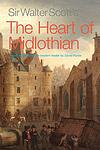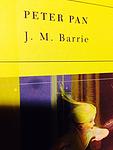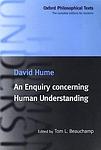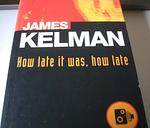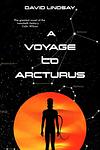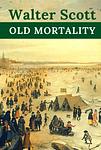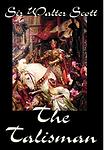The Greatest Scottish, South African Books of All Time
Click to learn how this list is calculated.
This list represents a comprehensive and trusted collection of the greatest books. Developed through a specialized algorithm, it brings together 300 'best of' book lists to form a definitive guide to the world's most acclaimed books. For those interested in how these books are chosen, additional details can be found on the rankings page.
Genres
Countries
Date Range
Reading Statistics
Click the button below to see how many of these books you've read!
Download
If you're interested in downloading this list as a CSV file for use in a spreadsheet application, you can easily do so by clicking the button below. Please note that to ensure a manageable file size and faster download, the CSV will include details for only the first 500 books.
Download-
1. The Prime of Miss Jean Brodie by Muriel Spark
The novel is set in 1930s Edinburgh and follows the story of six girls under the tutelage of an unconventional teacher, Miss Jean Brodie. Miss Brodie, in her prime, takes it upon herself to educate the girls about life, love, politics, and art, often disregarding the traditional curriculum. The narrative explores the influence of Miss Brodie on the girls, the consequences of her nonconformist teachings, and the ultimate betrayal that leads to her downfall.
-
2. Disgrace by J M Coetzee
"Disgrace" is a novel that explores the life of a middle-aged professor in South Africa who is dismissed from his position after having an affair with a student. After losing his job, he moves to the countryside to live with his daughter, where they experience a violent attack that significantly alters their lives. The story delves into themes of post-apartheid South Africa, racial tension, sexual exploitation, and the struggle for personal redemption.
-
3. Cry, the Beloved Country by Alan Paton
"Cry, the Beloved Country" is a novel about a black Anglican priest from South Africa's rural Natal region who embarks on a journey to Johannesburg in search of his sister and son. The priest grapples with the racial injustice and social inequality of apartheid-era South Africa, while his son becomes involved in political activism and is wrongfully accused of a crime. The novel explores themes of love, fear, and social justice, while highlighting the destructive effects of apartheid on the human spirit and the South African landscape.
-
4. The Private Memoirs and Confessions of a Justified Sinner by James Hogg
Set in 18th century Scotland, the novel explores the psychological downfall of a deeply religious man who believes he is predestined for salvation and thus justified in committing a series of murders. He is driven to this path of self-destruction by a mysterious stranger who may be either a devilish tempter or a manifestation of his own deranged mind. The book serves as a critique of religious fanaticism and a chilling exploration of the dark side of human nature.
-
5. The Wealth of Nations by Adam Smith
This influential economic book presents a groundbreaking theory that argues for free market economies. The author posits that individuals acting in their own self-interest within a system of natural liberty will result in societal benefit, a concept often referred to as the "invisible hand" theory. The book also critiques mercantilism and explores concepts such as the division of labor, productivity, and free markets. It is widely considered one of the foundational texts in the field of economics.
-
6. Waiting for the Barbarians by J M Coetzee
The novel is set in a small frontier town of an unnamed empire, where the magistrate lives a life of civil service and relative peace. His world is disrupted when the Empire declares a state of emergency due to rumors of barbarian uprising. The magistrate becomes a critic of the Empire's brutal and inhumane methods of dealing with the perceived threat, which leads to his arrest and torture. As he tries to understand his role in the vast political machinery, he also grapples with questions of power, justice, and humanity.
-
7. Lanark by Alasdair Gray
"Lanark" is an unconventional narrative that combines elements of fantasy, dystopia, and realism. The protagonist, a man named Lanark, moves through two parallel existences. In one, he's a young man named Duncan Thaw in post-war Glasgow, struggling with his artistic ambitions and personal relationships. In the other, he's Lanark in the grim, bureaucratic city of Unthank, suffering from a mysterious skin condition and grappling with his identity and purpose. The novel explores themes of love, alienation, creativity, and the human condition, presenting a complex and thought-provoking portrait of life and society.
-
8. Life & Times of Michael K by J M Coetzee
Set in South Africa during a civil war, the novel follows the journey of Michael K, a simple gardener with a cleft lip. When his mother falls ill, he attempts to take her back to her rural birthplace. After she dies en route, Michael continues the journey alone, struggling to survive in a war-torn landscape, while also being caught up in the bureaucratic red tape of the dystopian society. The story explores themes of freedom, survival, and the human spirit's resilience against adversity.
-
9. The Heart Of Midlothian by Sir Walter Scott
The novel is a historical tale set in 18th-century Scotland, revolving around Jeanie Deans, a young woman of strong moral character, who embarks on a daunting journey from Edinburgh to London to seek a royal pardon for her wrongfully accused sister, Effie, who faces execution. Along the way, Jeanie encounters various characters from different strata of society, confronting issues of justice, morality, and national identity. Her steadfast loyalty and unwavering principles highlight the cultural and social tensions of the time, as the narrative intertwines personal drama with broader historical events, including the Porteous Riots and the influence of the Scottish Reformation.
-
10. Peter And Wendy by J. M. Barrie
"Peter And Wendy" by JM Barrie is a beloved children's classic that tells the enchanting story of a young girl named Wendy Darling who, along with her two brothers, embarks on a magical adventure to the whimsical world of Neverland. There, they encounter the mischievous and eternal boy, Peter Pan, and his fairy companion, Tinker Bell. Together, they face thrilling escapades, battles with the villainous Captain Hook, and discover the importance of imagination, friendship, and the power of never growing up.
-
11. Burger's Daughter by Nadine Gordimer
"Burger's Daughter" is a novel centered around Rosa Burger, a white woman in South Africa during the apartheid era. The narrative delves into Rosa's life and struggle to find her identity, while also dealing with the legacy of her parents who were anti-apartheid activists. This story provides a deep look into the political and social climate of South Africa during a time of racial segregation and oppression.
-
12. An Enquiry Concerning Human Understanding by David Hume
This philosophical work explores the nature of human knowledge, arguing that all of our understanding comes from experience rather than innate ideas. The author challenges the idea of causality, suggesting that our belief in cause and effect is based on habit rather than logical reasoning. The book also discusses the limitations of human understanding, including the inability to fully comprehend the concept of God or the soul, and the impossibility of certain knowledge. The author's skepticism about traditional philosophical concepts has had a significant influence on later philosophers and the field of epistemology.
-
13. The Story Of An African Farm by Olive Schreiner
The book is a pioneering work in feminist literature, set in the harsh and arid South African veld in the late 19th century. It follows the lives of two English children, Lyndall and Waldo, who live on a farm and grapple with the constraints of their isolated environment. The narrative explores themes of gender, race, and colonialism, as the characters confront the societal expectations and limitations placed upon them. Through their struggles and relationships, the story delves into existential questions and the search for personal freedom, challenging the traditional roles and beliefs of the time.
-
14. Trainspotting by Irvine Welsh
This novel is a gritty, raw portrayal of a group of heroin addicts living in Edinburgh, Scotland. The narrative is non-linear and told from multiple perspectives, providing a deep dive into the minds and lives of these characters. The story explores themes of poverty, addiction, friendship, and the struggle to escape one's circumstances, all set against the backdrop of a bleak urban landscape. It is known for its strong Scottish dialect, graphic content, and dark humor.
-
15. July's People by Nadine Gordimer
"July's People" is a novel set in a hypothetical future where South Africa's apartheid system has collapsed and the nation is embroiled in a brutal civil war. The story follows a liberal white family who, fleeing the violence, are taken in by their black servant, July, in his rural village. The book explores the power dynamics and complexities of their relationship, as they navigate this new reality where traditional roles are reversed, and grapple with issues of race, class, and privilege.
-
16. A Dry White Season by Andre Brink
Set in apartheid-era South Africa, "A Dry White Season" follows the story of Ben Du Toit, a white schoolteacher who becomes involved in the fight against the system after his gardener's son is brutally beaten by the police. As he delves deeper into his quest for justice, he becomes increasingly isolated from his community and his family, and ultimately pays the highest price for his convictions. The novel is a powerful exploration of the devastating effects of racial injustice and the courage it takes to stand against it.
-
17. Long Walk To Freedom by Nelson Mandela
"Long Walk to Freedom" is a powerful autobiography that chronicles the extraordinary life of Nelson Mandela. From his humble beginnings in a rural village to becoming the first black president of South Africa, Mandela's journey is one of resilience, determination, and unwavering commitment to justice and equality. Through his personal experiences, he provides a vivid account of the struggle against apartheid, his 27 years of imprisonment, and the eventual triumph of democracy. This book serves as an inspiring testament to Mandela's unwavering spirit and his lifelong fight for freedom and human rights.
-
18. How Late It Was, How Late by James Kelman
The novel is a stream-of-consciousness narrative told from the perspective of Sammy, a shoplifter and ex-convict from Glasgow who wakes up in an alley after a two-day drinking binge to find he is completely blind. As Sammy struggles to navigate his new reality, he contends with bureaucratic systems, confronts his past, and grapples with his relationships, all while trying to understand and adjust to his sudden loss of sight. The story is a gritty exploration of working-class life, the human condition, and the nature of reality.
-
19. Chaka by Thomas Mofolo
This novel explores the life of Chaka, a legendary leader in Southern Africa who turns into a tyrant due to his insatiable thirst for power. The narrative focuses on his rise to power, his strategic military genius which leads to the expansion of the Zulu Empire, and his eventual downfall due to his increasing brutality and madness. The story is a blend of historical fact and folklore, creating a complex portrait of a man driven by ambition and consumed by his own power.
-
20. Down Second Avenue by Es'kia Mphahlele
"Down Second Avenue" is a semi-autobiographical account of a black man's life under apartheid in South Africa. The narrative chronicles the protagonist's journey from childhood to adulthood, detailing his experiences with poverty, discrimination, and the struggle for education. Despite the harsh realities of life under apartheid, the protagonist's resilience and determination shine through, offering a poignant and powerful critique of the socio-political realities of the time.
-
21. A Voyage To Arcturus by David Lindsay
"A Voyage to Arcturus" is a philosophical and allegorical novel that follows the journey of a man named Maskull to the planet Tormance, located in the star system Arcturus. As he explores this strange and mystical world, Maskull encounters various beings and experiences profound transformations, both physically and spiritually. Through vivid and imaginative storytelling, the book delves into themes of identity, morality, and the nature of reality, challenging readers to question their own perceptions and beliefs.
-
22. Guy Mannering by Sir Walter Scott
The novel unfolds as a tale of prophecy and fate intertwined with the lives of its characters, primarily centering around Henry Bertram, the heir to the estate of Ellangowan, who is kidnapped as a child by smugglers after his father's financial ruin. The story spans over two decades, following Henry's adventures and misadventures as he grows up under an assumed identity. The narrative is rich with themes of loyalty, inheritance, and the supernatural, as the predictions of the astrologer Guy Mannering and the Gypsy matriarch Meg Merrilies play out in the lives of the Bertrams and their acquaintances. Set against the backdrop of the Scottish Lowlands, the tale weaves through a tapestry of social change and personal redemption, culminating in the restoration of family and fortune.
-
23. Old Mortality by Sir Walter Scott
Set in the 17th century during the Covenanting Rebellion in Scotland, the novel weaves a tale of adventure, romance, and political intrigue around the historical events of the time. The story follows the young hero, Henry Morton, who is caught between his loyalty to the Presbyterian Covenanters and his love for Edith Bellenden, a Royalist. As Morton becomes embroiled in the conflict, he must navigate a path through the tumultuous civil war, facing moral dilemmas and the consequences of his choices. The narrative also explores themes of honor, tradition, and the impact of history on individual lives, all while providing a rich portrayal of Scottish culture and the complexities of religious and political loyalties.
-
24. The Talisman by Sir Walter Scott
"The Talisman" is a historical novel set during the Third Crusade, focusing on the conflict between Richard the Lionheart, King of England, and Saladin, Sultan of Egypt and Syria. The story explores themes of chivalry, honor, and the cultural clash between the Christian West and the Islamic East. The plot revolves around a talisman, which is believed to have healing powers, and the knight who is tasked with delivering it to Richard. The novel presents a nuanced view of both sides of the Crusade, highlighting the virtues and flaws of each.
-
25. The No. 1 Ladies' Detective Agency by Alexander McCall Smith
The book follows the story of Precious Ramotswe, a woman in Botswana who opens the country's first and only female-run detective agency. She uses wisdom, intuition, and her understanding of human nature to solve various cases, from missing husbands to wayward daughters and con men. The story is not just about solving mysteries, but also provides a deep insight into the culture, landscape and people of Botswana.
Reading Statistics
Click the button below to see how many of these books you've read!
Download
If you're interested in downloading this list as a CSV file for use in a spreadsheet application, you can easily do so by clicking the button below. Please note that to ensure a manageable file size and faster download, the CSV will include details for only the first 500 books.
Download







